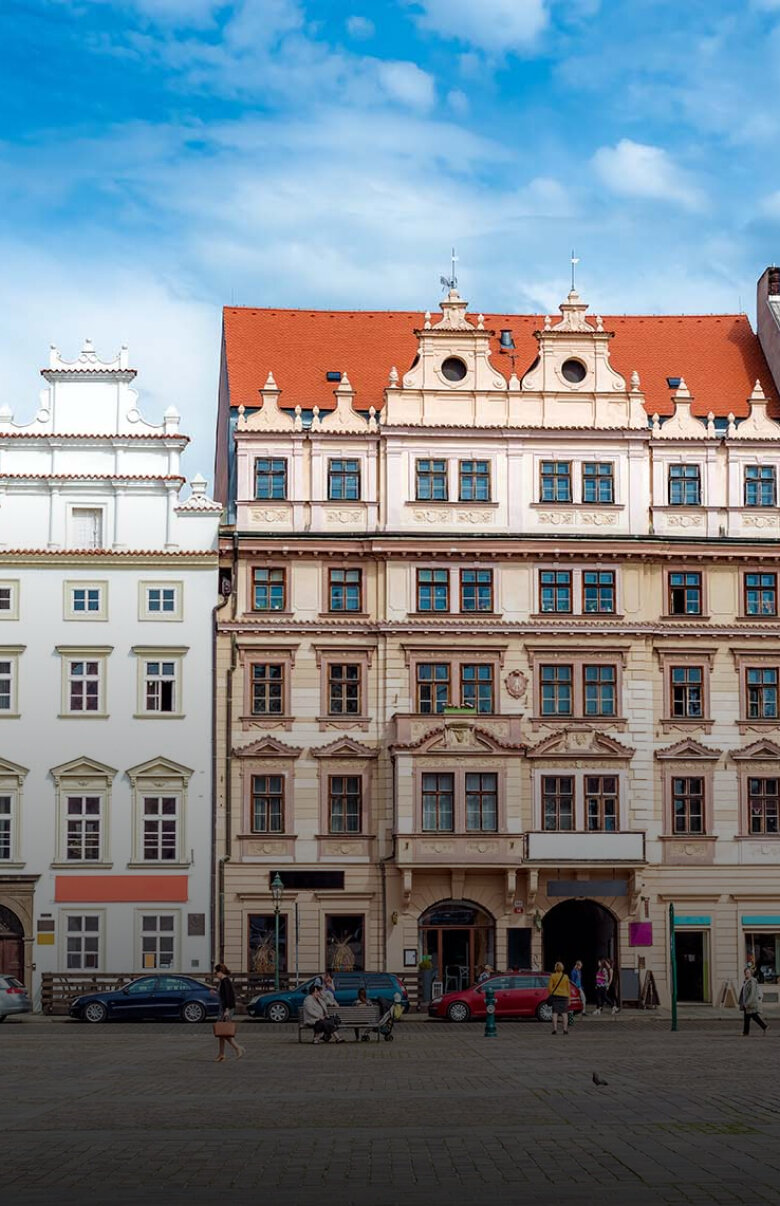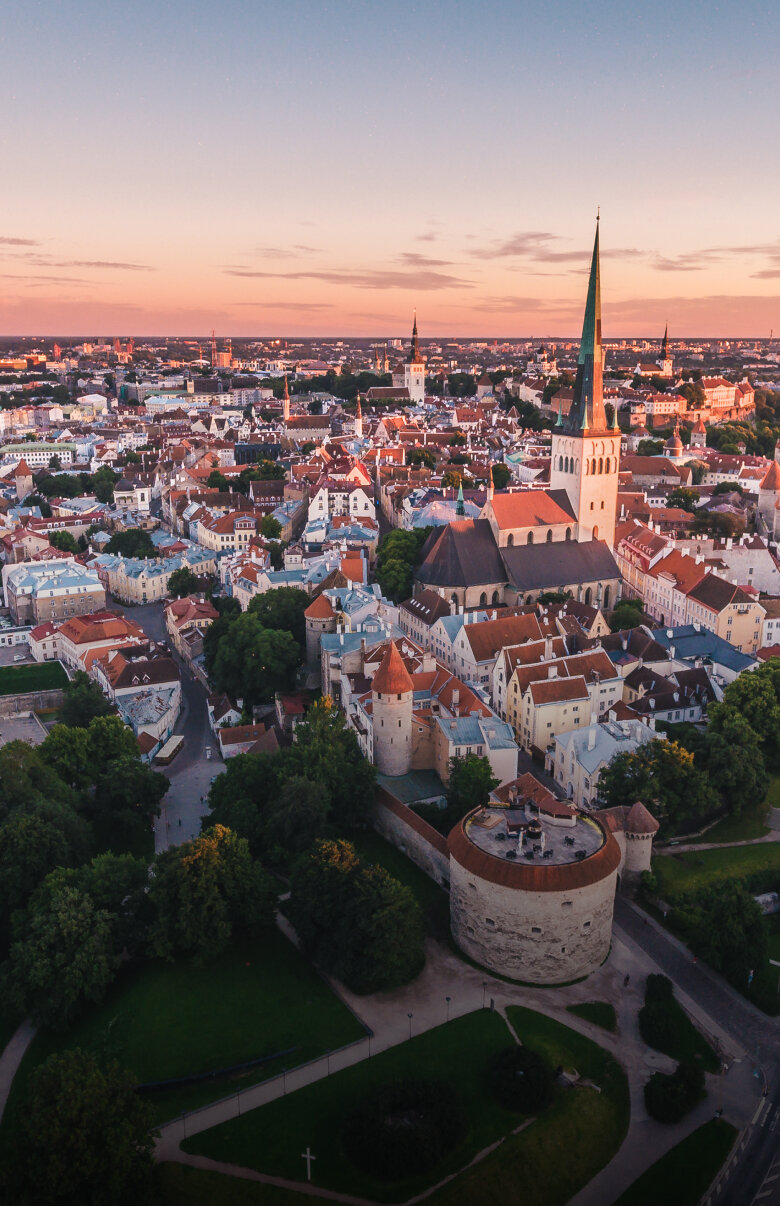Universities
Medical studies Spain
Studying medicine in one of the most beautiful holiday destinations in Europe? And without an A-level? Sounds too good to be true. Spain not only attracts students with over 300 days of sunshine a year, vibrant culture and beautiful nature, but also with renowned universities and highly trained teaching staff. Can you imagine starting your medical career at a university in Spain's colourful student cities? Then you will find all the important information about studying medicine in Spain in this article.
You are interested in Studying medicine abroad?
We are happy to advise you free of charge about the possibility of studying medicine abroad. futuredoctor supports you in obtaining a place to study medicine at over 21 universities in 9 countries.
What makes studying medicine in Spain special
Studying medicine in Spain is not only the start of a great adventure, but also has a number of advantages.
Numerus Clausus is not everything!
Unlike in Germany, your A-level grades only make up 60 per cent of the application process for places at Spanish medical universities. The other 40 per cent is determined by an entrance test. So even with a less than perfect average grade, you still have a chance of getting a place.
Medical studies in Spanish or English
Did you already speak Spanish at school or are you interested in learning the language? Depending on the university, medical studies in Spain are offered to students in English, Spanish or both languages. You therefore have the opportunity to automatically improve your skills in at least one world language during your medical studies.
Renowned universities and international recognition
Spain has a long history of medical education and research and the medical faculties of Spanish universities (in Spanish: facultad de medicina) offer many study places and enjoy an excellent reputation. The high-quality Spanish medical degree is internationally recognised, so you can then start working in an EU country of your choice.
Exciting university cities in Spain
Spain has some of the most beautiful student cities in Europe! Whether it's Barcelona, with its magnificent architecture, culture and nature with its proximity to the sea, or Madrid, with its vibrant art scene and tranquil parks - every Spanish city has its own special charm and can offer you everything you need for an exciting student life and make your medical studies easier.

Study medicine abroad with futuredoctor
Do you dream of studying medicine, but the chances of getting a place in your home country are slim? We can help you find a suitable study place abroad.
Advantages at a glance:
- EU-wide recognised qualifications
- Study in English or German
- > 95% Success rate
- > 1,000 study places allocated
From the selection of universities and support in the application process to orientation and finding accommodation - we are at your side.
Studying medicine in Spain - possible at these universities
In Spain's beautiful student cities, you will find a whole host of universities where you could start your medical studies. Here is a selection of the most popular universities for medical studies.
Medical studies at the University of Barcelona
The University of Barcelona is one of the oldest and most renowned universities in Spain. It offers students the opportunity to study dentistry and human medicine in the winter semester. Most of the lectures within the degree programmes are held in Spanish and Catalan. As the Faculty of Medicine also pursues an international vocation, some academic lessons are also taught in English in all academic years.
The university campus is located in the centre of Barcelona and exudes a very special atmosphere thanks to its historic buildings. After your lectures, you can enjoy your free time to the full. Barcelona is one of the most popular student cities and, in addition to the Spanish sun, offers students beaches, shopping and nightlife options and a lively music scene in a Mediterranean climate.
Study places at the Autonomous University of Barcelona (Universitat Autònoma de Barcelona/ UAB)
The Universitat Autònoma de Barcelona is almost 50 years old and is one of the top 200 universities in the world. At the Faculty of Medicine, which cooperates with numerous modern teaching hospitals such as the Hospital de la Santa Creu i Sant Pau, you can start studying human medicine. The majority of students come from abroad, which is why the university has a higher proportion of foreign students with international exchanges on campus.
University of Madrid (Universidad Complutense Madrid)
At the Complutense University of Madrid, medical studies are offered in Spanish in the winter semester. In cooperation with five teaching hospitals, students receive an excellent medical education with a particular focus on research and practice.
Madrid is the second largest city in Europe. With historical sights, a diverse nightlife and traditional tapas bars, the city is bursting with a unique Spanish quality of life, making it a particularly interesting place to study medicine.
University of Valencia (Universidad Cardenal Herrera/ CEU)
At the Cardenal Herrera Private University in Valencia, 50 new students are offered a degree in human medicine every year. The first two years (4 semesters) are taught entirely in English, followed by a mixture of English and Spanish. The medical faculty is particularly distinguished by its excellent teaching staff and its state-of-the-art Advanced Medical Simulation Centre.
Universidad Catolica San Antonio de Murcia (UCAM)
At the Catholic University of San Antonio de Murcia, you can also study medicine and dentistry in English or Spanish. The university particularly promotes the latest state-of-the-art learning technologies and interdisciplinary teaching in all clinical subjects. For example, there is a digital anatomical dissection table to help you learn about the structure of the human body.
What are the admission requirements for studying medicine in Spain?
If you are a Medical study place in Spain, you have exactly the same requirements as applicants from Spain. Your Abitur grade only plays a subordinate role as an admission requirement, as it only accounts for 60 per cent of your chances of admission. You also score points here if you have taken science subjects such as chemistry or biology in the upper school. The other 40 per cent is determined by the result of your entrance exam. This is also known as the "Selectividad" or "Pruebas de Acceso a la Universidad". It takes place twice a year in Germany and consists of multiple-choice questions in the fields of biology, chemistry, physics and maths. General knowledge is also tested. You have 60 minutes to answer these questions. This is followed by a 15-minute interview in Spanish. You can also take the exam in Germany. Many universities also have their own entrance test for medical studies. We can help you prepare for these exams and fulfil all the requirements!
Many universities also require proof of language proficiency as an admission requirement. For example, you can prove your knowledge of Spanish with the DELE (Diploma de Espanol como Lengua Extranjera) or your knowledge of English with the Cambridge Certificate. However, many universities also offer their own language test.
Unfortunately, a vocational baccalaureate is not enough to get a place to study medicine in Spain. No surprise? You may not realise that in some European countries it is possible to get a Studying medicine with a specialised baccalaureate to start.
Studying medicine in Spain - duration and procedure
How long does it take to study medicine in Spain? Studying medicine in Spain usually begins with a two to three-year foundation course. During this pre-clinical period, the main focus is on body structure, biology, statistics, genetics and biochemistry. You will also gain an insight into the psychology and ethics of medicine. At the end of this pre-clinical stage, there are already lectures on Surgeryorthopaedics or traumatology. After studying for 6 years (12 semesters), you will graduate from the university with the title "grado en medicina".
Structure of the study programme
The clinical section of your medical degree programme follows the foundation course. This focusses primarily on practice. You will gain knowledge of various specialisms such as gynaecology, obstetrics and emergency medicine and then apply this theory in practice during your rotations on various hospital wards. Numerous electives and courses such as occupational medicine and sports medicine can help you prepare for your future specialisation. Thanks to numerous collaborations with foreign universities and hospitals, you will have the opportunity to complete a Semester abroad or a Clinical traineeship in another country in Europe, Africa, Asia or South America.
After the clinical section, you will usually complete the internship year ("ano internado"), in which you can build on the practical skills you have already learnt.
Degree recognised in all EU countries
If you are aiming to obtain a doctorate in medicine, you can write your doctoral thesis in a research area of your choice at the end of your studies.
As your degree is recognised in Germany and all other EU countries, you have the opportunity to start your specialist training in any country after successfully completing your studies. However, if you want to continue your career in Spain, you must now take a state exam (MIR exam), the results of which will qualify you for your specialisation.
How much does it cost to study medicine in Spain?
To give you your Financing medical studies abroad To be able to choose the right university, you need to think carefully about the costs involved. The cost of studying medicine in Spain differs between public and private universities. At public universities, tuition fees for students from the EU/EEA range between €2,800 and €3,600 per year. Private universities can charge up to 25,000 euros per year.
The cost of living in Spain can vary greatly depending on where you study, your lifestyle and your individual needs. As a rough estimate, the rental costs for students for a room in a shared flat or a small flat are between 300 euros and 600 euros. You should also factor in at least 200 euros for food and hygiene. Including transport costs, study materials and leisure activities, your monthly expenses could therefore be between 700 euros and 1,200 euros.
Fortunately, there are numerous Scholarships for studying medicine abroad. Futuredoctor will be happy to advise you on your options.
Country and people: 3 exciting facts about Spain
964 metres of coastline is what Spain has to offer. And that's not all: according to the Foundation for Environmental Education, Spain has the highest number of Blue Flag beaches in the world! In 2019, a total of 566 beaches were awarded the status.
The oldest restaurant in the world is located in Spain. The Sobrino de Botín in Madrid was opened back in 1725 and has been open ever since. It serves traditional Spanish cuisine.
In Spain Europe's only desertTabernas in Andalusia extends over 280 square kilometres.
How do I apply to study medicine in Spain?
Applications are usually made online on the website of the respective university. You must submit your documents, which include your certified school-leaving certificate translated into the Spanish grading system, within the Application deadlines submit a complete application form. The application process at some medical universities in Spain also includes a personal interview or a separate entrance test. We at futuredoctor are here to help you with our experience so that your Application for medical studies in Spain.
Are you ready to realise your dream of studying medicine in Spain? Contact us today and start your journey with futuredoctor. We look forward to accompanying you on your journey and working with you to realise your dream of a career in medicine.
Do you definitely want to complete your studies in a sunny and warm country? Then take a look at the following countries: Medical studies Turkey, Medical studies Portugal, Medical studies Greece, Medical studies Italy, Medical studies Malta.
Starting signal
What are you waiting for? 🎉
Order your information pack now, find out more about studying medicine abroad and get started as a medical student!
Frequently asked questions
FAQs about studying medicine in Spain
What are the advantages of studying medicine in Spain?
Spain offers medical studies without the need for a 1.0 A-level, teaching in Spanish or English, renowned universities and international recognition of the degree.
In which languages is the medical degree programme offered in Spain?
Depending on the university, the programme is offered in Spanish, English or both languages.
Which renowned universities are there for studying medicine in Spain?
Popular universities include the University of Barcelona, the Autonomous University of Barcelona, the University of Madrid and the Universidad Catolica San Antonio de Murcia.
What are the requirements for studying medicine in Spain?
In addition to the university entrance qualification, the Abitur grade and the result of the entrance test count. Language skills in Spanish or English are also required.
How is the medical degree programme in Spain structured?
The degree programme comprises a foundation course with a focus on basic subjects and a clinical section with practical experience.
How much does it cost to study medicine and live in Spain?
Tuition fees vary between public and private universities. The cost of living is between 700 euros and 1,200 euros per month, depending on the city.
How do I apply to study medicine in Spain?
Applications are made online via the university website. Necessary documents are the translated Abitur certificate and, if applicable, a personal interview or your own entrance test.
What are some interesting facts about Spain?
Spain has a long coastline, the oldest restaurant in the world and is the only European country with a desert.
Is a perfect grade point average required for admission to medical school in Spain?
No, a perfect grade point average is not required. A-level grades only make up 60% of the application, the remaining 40% are determined by an entrance test.
30 countries for your medical studies
The Netherlands
Groningen, Maastricht, Amsterdam, Leiden, Utrecht, Rotterdam

Switzerland
Basel, Fribourg, Berne, Geneva, Zurich, Neuchâtel, Lausanne





























